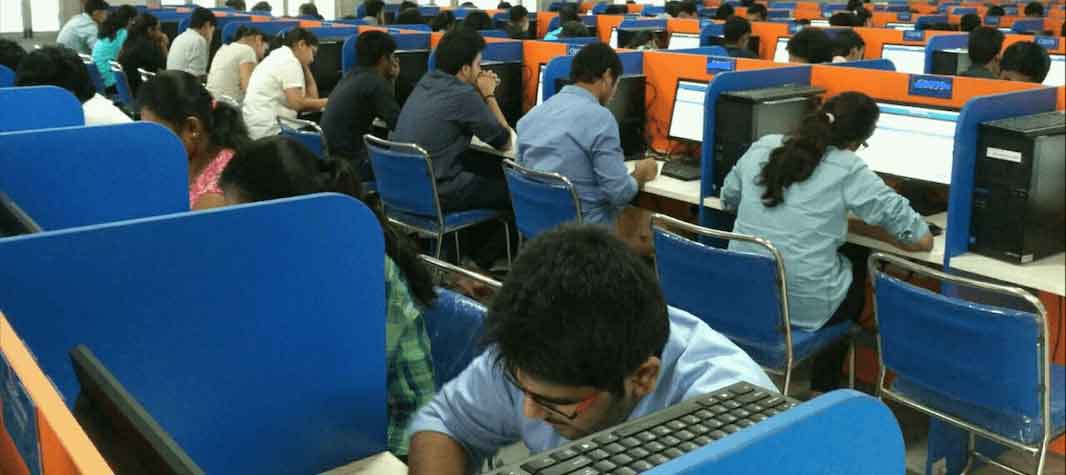Top Scholarships for Indian Students in Germany
Germany has long been one of the most attractive destinations for international students, and Indian students are no exception. In recent years, there has been a notable increase in the number of Indian students who are enrolling in German universities. The Federal Statistical Office of Germany reported a 15.1% increase in the number of Indian students during the 2023-2024 winter semester, with nearly 50,000 students pursuing higher education in Germany.
Germany’s appeal lies in its high-quality education system, minimal or no tuition fees at public universities, and the opportunity for students to work while studying. Indian students, particularly those in fields like Engineering, Management, and Natural Sciences, find Germany to be an ideal destination. However, the cost of living and other expenses can be a barrier. To help alleviate these financial burdens, various scholarships are available for Indian students. Below is a detailed guide to the top scholarships for Indian students in Germany.
Table of Contents
| Sno. |
Particulars |
| 1 |
Why Study in Germany? |
| 2 |
Types of Scholarships Available for Indian Students |
| 3 |
Top Scholarships for Indian Students in Germany |
| A |
Technische Hochschule Koln (TH Köln) End of Study Scholarships |
| B |
Einstein Fellowship |
| C |
Hamburg University Scholarships |
| D |
Alexander Von Humboldt Foundation Scholarships |
| E |
DAAD Scholarships |
| F |
Deutschlandstipendium National Scholarship |
| G |
Heinrich Boll Foundation Scholarships |
| H |
Heidelberg University Scholarships |
| 4. |
Other Scholarships to Explore |
Why Study in Germany?
- World-class Education: Germany is home to top-ranked universities, especially in fields like STEM (Science, Technology, Engineering, and Mathematics).
- No Tuition Fees at Public Universities: Public universities in Germany generally do not charge tuition fees, significantly reducing the cost of education.
- Work Opportunities: Students can work up to 140 full days or 280 half-days per year during their studies. This makes it easier to cover living expenses while gaining valuable work experience.
- Diverse Student Population: Indian students represent the largest group of international students in Germany, enriching the multicultural experience of studying there.
Despite these advantages, the cost of living can still be a challenge for many students. Scholarships can ease this financial strain and help students focus more on their studies.
Types of Scholarships Available for Indian Students
Scholarships for Indian students in Germany are offered by a variety of entities, including:
- German Universities: Many universities provide merit-based or need-based scholarships to attract top international talent.
- German Government: Various government-run programs like DAAD offer scholarships to international students.
- Foundations and Organizations: Several German foundations provide scholarships based on academic excellence, research potential, or specific fields of study.
In addition to financial support, some scholarships provide benefits like mentoring, internships, and networking opportunities, which can be valuable for students during their academic journey.
Top Scholarships for Indian Students in Germany
A. Technische Hochschule Koln (TH Köln) End of Study Scholarships
The End of Study Scholarship at TH Köln is offered to international students who are nearing the completion of their Bachelor’s or Master’s programs. This scholarship is funded by the German Academic Exchange Service (DAAD) and the Federal Foreign Office.
Eligibility:
- Must be enrolled at TH Köln.
- Should be in the final stage of their degree program and expected to graduate within 12 months.
Benefits:
- Financial support up to €556 per month for students with care obligations or €992 per month for those with health impairments.
Application Timeline:
- Applications are accepted twice a year, with deadlines on December 15 and June 15.
B. Einstein Fellowship
Offered by the Einstein Forum and the Wittenstein Foundation, this fellowship supports young scholars under 35 who want to explore interdisciplinary research that is outside their previous field of study.
Eligibility:
- Must be under 35 years of age.
- Should hold a degree in humanities, social sciences, or natural sciences.
Benefits:
- Accommodation in Einstein’s former summerhouse.
- Stipend of €10,000 and reimbursement for travel expenses.
Application Process:
- Applications must be submitted by email, including a project proposal and letters of recommendation.
C. Hamburg University Scholarships
Hamburg University offers three distinct scholarships for international students:
- Merit Scholarship: Up to €930 per month for students with excellent academic records.
- Degree Completion Grant: Up to €930 for students completing their degree.
- DAAD’s Hilde Domin Programme: Supports students facing risks in continuing their studies.
Eligibility:
- Must be an international student enrolled at Hamburg University.
D. Alexander Von Humboldt Foundation Scholarships
This prestigious foundation provides numerous awards for highly accomplished international researchers and scholars, including:
- Humboldt Research Fellowship: Provides €2,700 per month for postdoctoral researchers.
- German Chancellor Fellowship: Offers a monthly grant of up to €2,700 for international graduates.
Application:
- The application process is online through the foundation’s official website.
E. DAAD Scholarships
The German Academic Exchange Service (DAAD) offers numerous scholarships for international students at all stages of their academic journey, from undergraduate to postdoctoral research. These scholarships typically cover living expenses, travel costs, and sometimes insurance.
Eligibility:
- Varies depending on the specific program.
F. Deutschlandstipendium National Scholarship
This scholarship offers €300 per month for high-achieving students at participating German universities. It is funded by private sponsors and matched by the German government.
Eligibility:
- Open to students of all nationalities, including Indian students, based on academic excellence.
G. Heinrich Boll Foundation Scholarships
The Heinrich Boll Foundation offers scholarships for students with a strong academic record who are also engaged in social or political activities. Applicants must demonstrate a commitment to the foundation’s values, including ecology, sustainability, and human rights.
Eligibility:
- Open to graduates and doctoral students from any discipline.
H. Heidelberg University Scholarships
Heidelberg University offers several scholarships for international students, including the Amirana Scholarship for students pursuing medicine or dentistry.
Eligibility:
- Varies by scholarship, but typically requires a strong academic background.
Other Scholarships to Explore
- Erasmus Fellowship: A program that allows students to gain international experience while studying abroad.
- Friedrich Ebert Scholarship: Provides funding for both undergraduate and postgraduate studies.
- Graduate School Scholarship Program (GSSP): Offers funding for PhD students at reputable German universities.
- Konrad-Adenauer Stiftung Scholarship: A fully-funded scholarship for international students proficient in the German language.
Make Your Education Affordable
Germany remains one of the most accessible and high-quality study destinations in the world. With its minimal tuition fees and numerous scholarships for international students, it offers Indian students an excellent opportunity to pursue higher education while keeping costs manageable.
By exploring and applying for the scholarships listed above, Indian students can secure the financial support they need to achieve their academic and professional goals in Germany.































